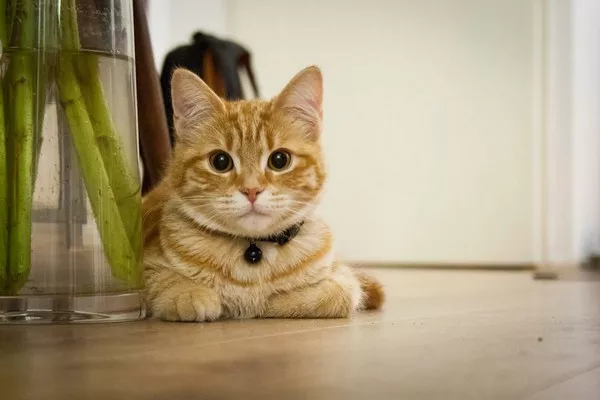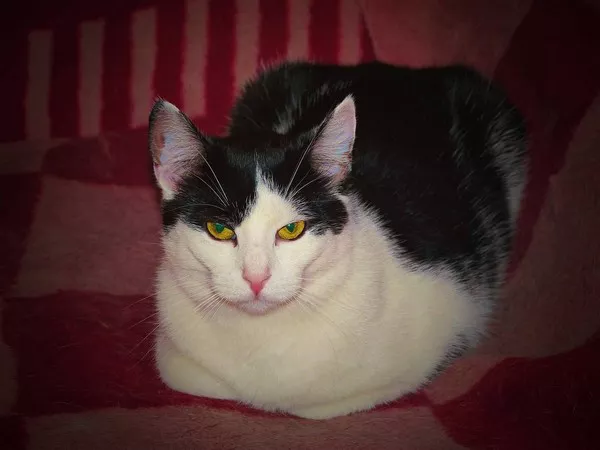Calico cats are known for their striking and distinctive coat patterns, but when it comes to their health, their dietary needs are just as important as their appearance. Providing the right nutrition is crucial to ensuring your Calico cat leads a happy and healthy life. In this comprehensive guide, we will delve into the dietary requirements of Calico cats, exploring the essential nutrients, potential health concerns, and practical tips to keep your feline companion in peak condition.
Understanding Calico Cat Basics
Before delving into the intricacies of their diet, it’s essential to understand the unique characteristics of Calico cats. Calicos are not a specific breed but rather a coat pattern that can appear in various breeds, including the popular American Shorthair, Persian, and Maine Coon. The distinctive tri-color coat consists of patches of white, black, and orange (or their diluted versions: gray, cream, and gold).
Balancing Nutritional Needs
Calico cats, like all felines, require a balanced and nutritious diet to maintain optimal health. Here are the key nutrients that should be included in your Calico cat‘s diet:
Protein: Cats are obligate carnivores, meaning they need a diet high in animal-based protein. Quality protein sources include meat, poultry, and fish. Look for cat food with a protein content of at least 30% to meet your Calico’s dietary needs.
Fat: Healthy fats are essential for energy and maintaining a shiny coat. Ensure that the cat food you choose contains a moderate amount of fat, preferably from animal sources like chicken fat or fish oil.
Taurine: This amino acid is vital for cats’ heart health and overall well-being. Most commercial cat foods are formulated with sufficient taurine, but it’s always wise to check the ingredient list.
Vitamins and Minerals: A well-balanced cat food should contain essential vitamins and minerals, including vitamin A, vitamin D, calcium, and phosphorus. These nutrients are crucial for bone health, vision, and immune function.
Water: Cats often don’t drink enough water, so wet cat food or a combination of wet and dry food can help ensure they stay hydrated. Adequate water intake is vital for kidney function and overall hydration.
Calico Cat Health Considerations
In addition to meeting their basic nutritional needs, Calico cat owners should be aware of specific health considerations associated with these felines:
Obesity: Calico cats, like many others, may be prone to obesity. Monitor your cat’s weight and adjust their diet accordingly. Provide a mix of playtime and controlled portions to keep them active and healthy.
Urinary Tract Health: Some studies suggest that Calico cats may have a higher predisposition to urinary tract issues. Ensure they have access to fresh water at all times, and consider a diet that supports urinary tract health.
Coat Care: Calico cats often have long hair, especially if they belong to breeds like Persians. Brush their coat regularly to prevent matting and hairballs, and consider a diet that promotes skin and coat health.
Dental Health: Dental problems can affect cats of any coat color or pattern. Providing dental treats or incorporating dry kibble into their diet can help promote good oral health.
Choosing the Right Cat Food
Now that we’ve outlined the nutritional needs and health considerations for Calico cats, let’s discuss how to choose the right cat food:
Read the Labels: Examine the ingredient list on cat food labels. Look for named meat sources like chicken, turkey, or fish as the primary ingredients. Avoid foods with excessive fillers, artificial additives, or by-products.
Life Stage Appropriateness: Choose cat food that is appropriate for your Calico’s life stage, whether it’s kitten, adult, or senior. Each stage has specific nutritional requirements.
Consider Wet and Dry Options: A combination of wet and dry cat food can provide a well-rounded diet. Wet food helps with hydration, while dry kibble can contribute to dental health.
Special Diets: If your Calico has specific health issues, consult your veterinarian about specialized diets. Some cats may benefit from diets tailored to address conditions like urinary tract problems or food sensitivities.
Monitor Portion Sizes: Obesity is a common concern, so be mindful of portion sizes. Follow the feeding guidelines on the cat food packaging, and adjust based on your cat’s activity level and weight.
Homemade Diets and Supplements
While commercial cat food is formulated to meet feline nutritional needs, some owners prefer preparing homemade meals for their Calico cats. If you choose this route, it’s crucial to ensure the diet is well-balanced. Consult with a veterinarian or a feline nutritionist to create a recipe that meets all nutritional requirements.
Supplements should be used cautiously, as excessive amounts can be harmful. If you’re considering adding supplements to your Calico’s diet, consult your veterinarian for guidance. Common supplements include omega-3 fatty acids for coat health or joint supplements for older cats.
Common Mistakes to Avoid
To ensure your Calico cat receives the best possible nutrition, avoid the following common mistakes:
Feeding Dog Food: Cats have specific dietary requirements that differ from dogs. Feeding your Calico cat dog food can result in nutritional deficiencies.
Overlooking Hydration: Cats can be prone to kidney issues, so it’s crucial to encourage water intake. Ensure your cat always has access to fresh water and consider incorporating wet food into their diet.
See Also:How Much Is a Male Calico Cat Worth?
Ignoring Dental Health: Dental problems can lead to various health issues. Include dental care in your cat’s routine, whether it’s through dental treats, specialized diets, or regular teeth cleanings.
Abrupt Diet Changes: Cats can be sensitive to sudden dietary changes. If you need to switch their food, do so gradually over several days to prevent digestive upset.
Skipping Veterinary Check-ups: Regular veterinary check-ups are essential to monitor your Calico’s overall health. Your vet can provide personalized dietary recommendations based on your cat’s specific needs.
Conclusion: A Happy, Healthy Calico Cat
In conclusion, providing the right nutrition for your Calico cat is vital for their overall well-being. By understanding their unique nutritional needs, considering health considerations, and making informed choices about cat food, you can ensure your feline friend lives a long, healthy, and happy life. Remember to consult with your veterinarian for personalized advice tailored to your Calico’s specific requirements. With proper care and attention to their diet, your Calico cat can thrive and continue to captivate with its stunning coat and vibrant personality.
Related Topics:
How to Determine if Your Calico Cat is Purebred?
Unique Charms and Pricings of Hairless Calico Cats
True Worth of a Dilute Calico Cat: Here’s What To Know
























